What is off-page SEO?
Off-page SEO strategies are used outside of your website to improve its search engine rankings and visibility. While on-page SEO optimizes elements within your site, off-page SEO focuses on external marketing activities that ultimately drive traffic back to your site. Off-page SEO is all about building brand recognition, trust, and authority making it easier to rank high in search.
7 off-page SEO strategies:
Why is having off-page SEO strategies important?
Off-page SEO is equally important as on-page SEO. Both work in conjunction to help increase your search visibility.
One of the more significant ranking factors is E.E.A.T., which stands for experience, expertise, authority, and trustworthiness. In 2019, Google announced they would include off-site signals to determine the authority or E.E.A.T a particular site might have on a topic.
Furthermore, off-page SEO holds significance in expanding your website’s exposure. By leveraging alternative traffic channels, your site swiftly gains access to a broader audience, facilitating Google’s comprehension of user interactions with your site.
A key aspect of off-page SEO strategies involves acquiring backlinks to your website. Securing backlinks from authoritative domains can elevate your authority, making it easier to rank for more competitive keywords. Before we dive into backlink strategies, let’s get familiar with link equity.
Off-page SEO strategies: link-building
In simple terms, link building refers to the process of acquiring links from other websites to your own. These links serve as endorsements or votes of confidence for your website, signaling to search engines that your content is valuable and trustworthy.
When a website links to yours with a “dofollow” link, it passes on its equity to your site. Let’s explore six factors that influence the equity transferred through the link.
6 factors that influence link equity passed by a backlink:
- The anchor text used to link to your site
- The age of the link to your site
- The number of links on a linking page
- The relation between the linking site’s subject matter and yours
- The trustworthiness of the linking site
- The authority of the linking site and the linking page
Now let’s get familiar with the three main types of links.
Types of links for off-page SEO
Created links (Good)
“Created links” are links intentionally made by website owners or marketers to boost their site’s visibility. Common methods include guest posting, directory submissions, social bookmarking, forum commenting, link exchanges, and press releases.
Built links (Better)
“Built links,” also called manual or acquired links, are intentionally created by website owners or marketers to boost their site’s search engine ranking and visibility. Unlike natural links earned organically, built links require proactive strategies such as broken link building and content marketing.
Natural links (Best)
“Natural links” are earned organically without deliberate effort from the website owner. They’re given by other website owners or users who find the content valuable. Well-researched content, statistics, software tools, and shareable graphics are among the most common sources of organic backlinks.
1. Broken link replacement
The idea of this strategy is to search for resource sites containing broken links and then contact the site administrator to offer your link as a replacement option. It’s crucial to ensure that the industry or context of the broken link aligns with your website.
Google search operators can help narrow your search.
Here are some templates:
“useful links” AND [topic]
[topic] intitle: “useful resources”
[topic] inurl:resources
Use an extension like Check My Links to find broken links on resource pages. Look for broken backlinks relevant to your brand. Contact the site admin and offer your link as a replacement. You can also use ahref’s broken backlink checker tool to check for opportunities on any URL.
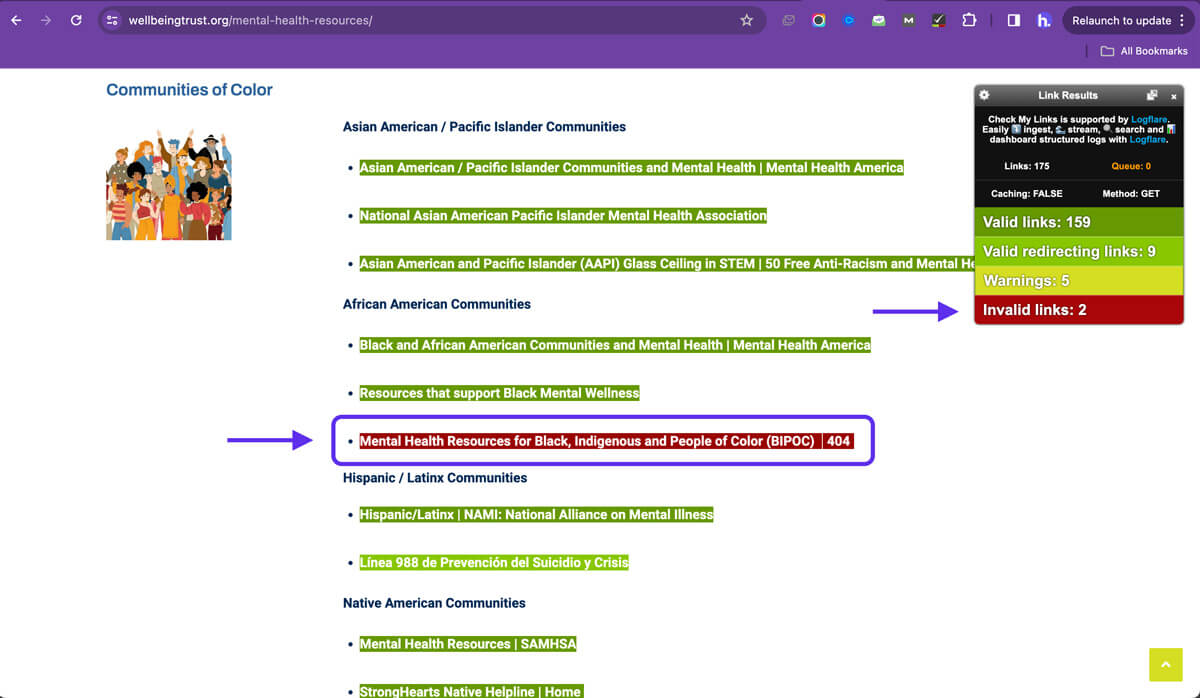
2. Join directories
Another great way to build backlinks for your off-page SEO strategies and exposure is to join reputable directories in your niche. These directories often provide at least one dofollow link and typically have high domain authority.
Again, using Google Search Operators, you can easily find directories in your niche:
For example, “mental health” + directory.
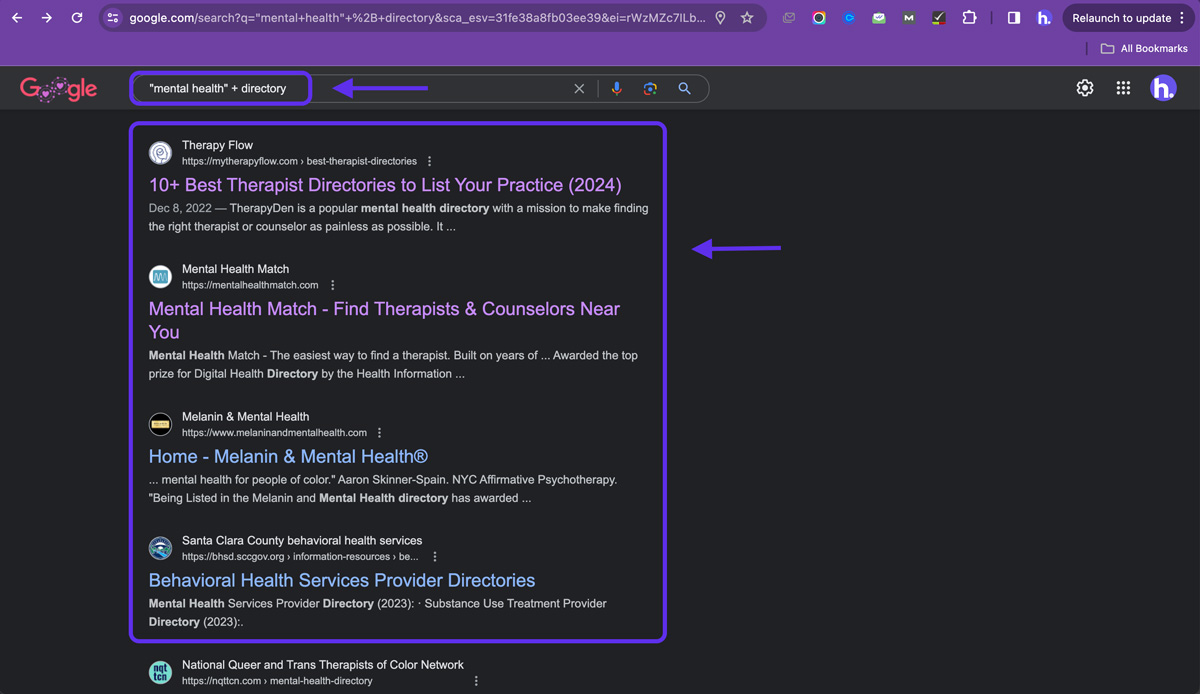
3. Guest posting
Guest posting presents an excellent opportunity to acquire high-quality backlinks. Many website owners seek collaboration with experts to generate content and, in return, offer a valuable dofollow link.
Some of these sites may require a fee for guest posting. However, presenting unique and valuable content can sometimes lead to free publication.
In my experience, dedicating time to craft informative and insightful articles yields better marketing results.
Recently, we authored a tutorial on improving Google PageSpeed scores for WordPress websites without coding. After pitching it to a few reputable platforms, ranktracker.com agreed to publish it, providing a valuable dofollow link. With a domain authority (DA) of 72 (according to Ahrefs) and over 85,000 monthly visits, ranktracker.com offers significant exposure and valuable link juice.
You can also use Google Search Operators to find guest posting websites, for example:
[therapy] + write for us
guest post + mental health
[substance abuse] inurl:write for us
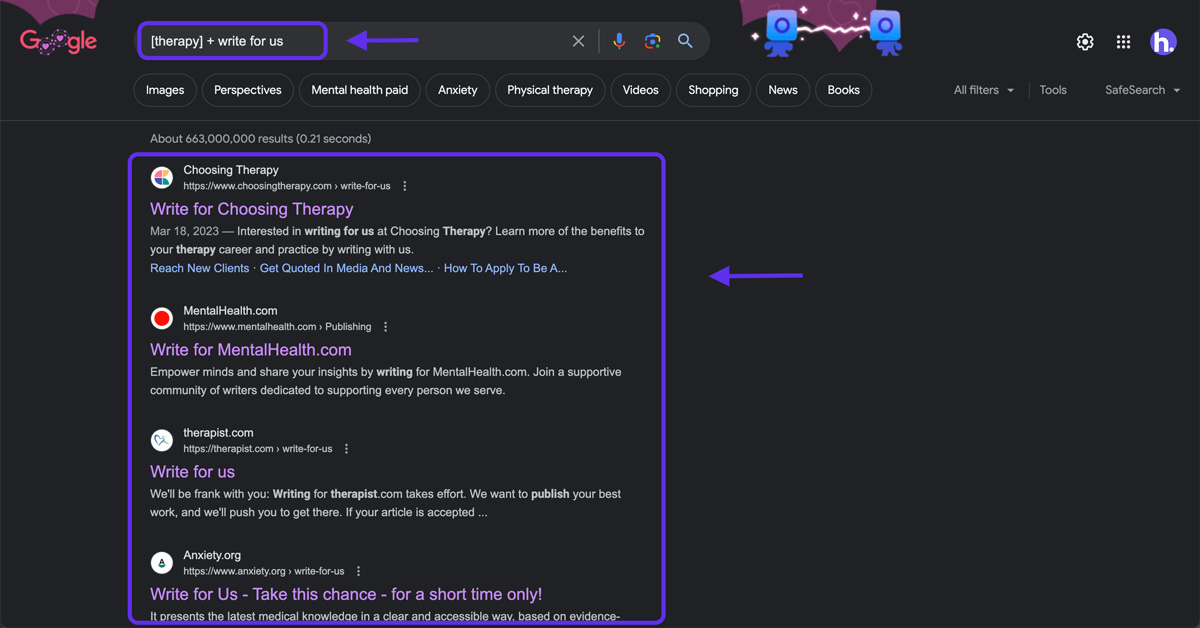
4. Citations
You’ve spent years perfecting your service and getting your degree. This knowledge is valuable, and you can leverage it to obtain backlinks and brand mentions.
Utilize Connectively to connect with journalists and publishers looking for professional citations and opinions.
Within the app, you can filter requests by topic, deadline, outlet, and more. On the paid version, you can have a filtered list sent to your email 3x a day, so you’ll be one of the first to respond, significantly increasing your chances of being chosen.
When pitching, always draft professional and detailed messages. Make sure to read the entire request and provide all requested items.
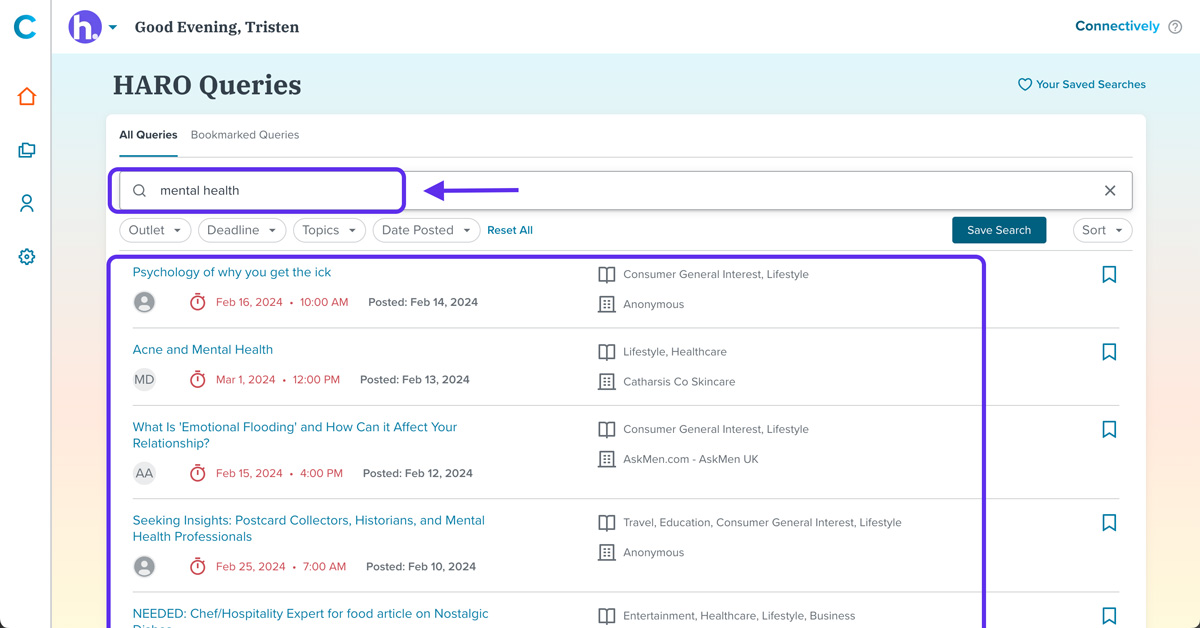
6. Reviews
Collecting reviews is an effective method for enhancing off-page SEO strategies. Google increasingly favors businesses with higher review ratings.
If your customers are satisfied with your service, they will likely provide a positive review when prompted. However, amidst running a business, it’s easy to forget to request these reviews. Fortunately, platforms like broadly.com can automate your entire review solicitation process.
7. Video marketing
The prevalence of video content as the primary format for consuming information is steadily increasing. Platforms such as YouTube and TikTok are experiencing continued growth in popularity.
Video significantly enhances the ease and engagement of content consumption for users. According to a 2022 study by Wyzowl, video content consumption has a consistent upward trend, reflecting people’s increasing investment in watching videos.
💬 When asked "How do you like to learn about a product or service?", 44% say they want to watch a short video. This comfortably beats other materials such as ebooks or manuals (16%), infographics (15%), text-based articles (13%), sales calls (6%), or webinars, presentations, and pitches (5%).
Wyzowl.com
Given statistics like these, it’s unquestionable that a significant portion of your off-page SEO strategy should be dedicated to video content.
An intelligent approach is to repurpose your written blog content into videos. It’s likely that your blog already contains valuable material that you can transform into engaging video content.
Wyzowl.com offers excellent services to assist in creating video content. For voiceovers, voices.com is a great resource to find skilled voice artists. Additionally, you can explore portfolios on Dribbble to discover talented motion graphic designers.
Video is a great way to get creative, promote your service, and provide real value for your audience.
Begin your off-page SEO strategies with Huely Inc.
In conclusion, off-page SEO strategies play a crucial role in enhancing a website’s visibility and authority on search engines. By implementing tactics like the ones in this article can improve your search engine rankings and drive more organic traffic to your site. It is important to consistently monitor and analyze the performance of off-page SEO efforts to make necessary adjustments and ensure continued success. Remember, a well-rounded SEO strategy that includes both on-page and off-page techniques is key to achieving long-term success in the competitive digital landscape. Interested in learning how we can help you achieve your off-page SEO goals? Contact us today.

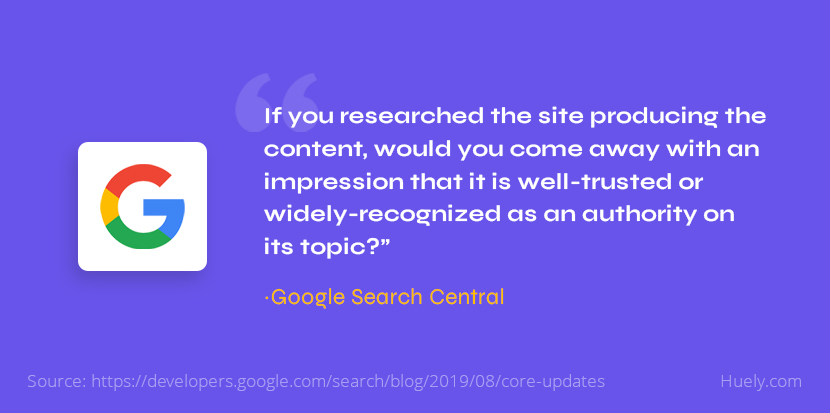
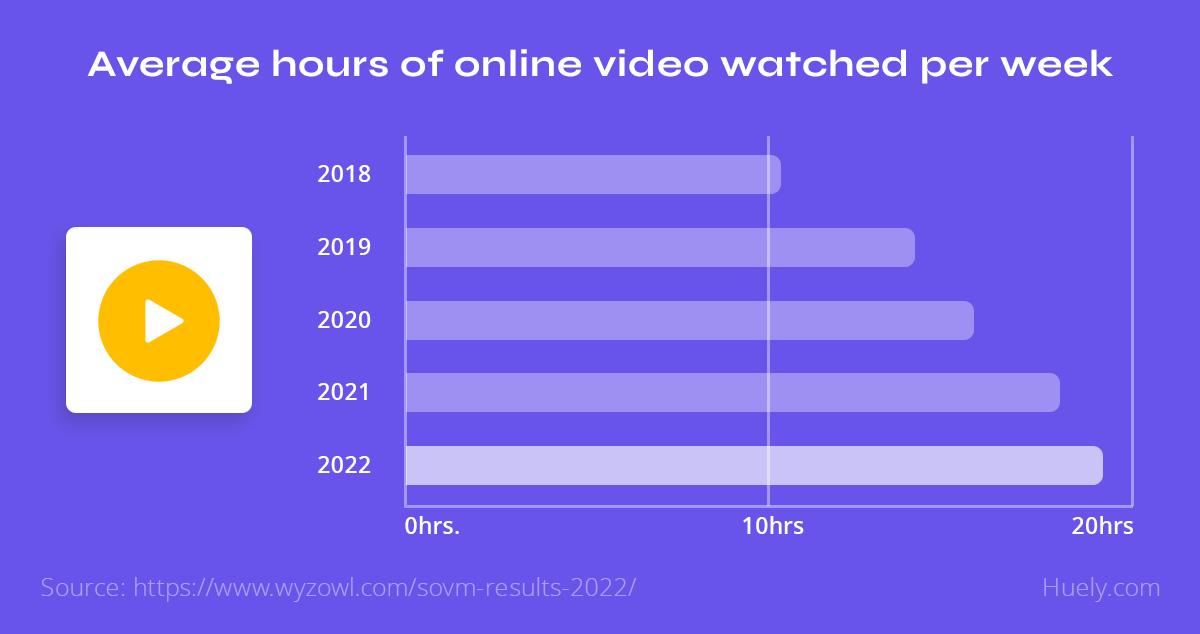



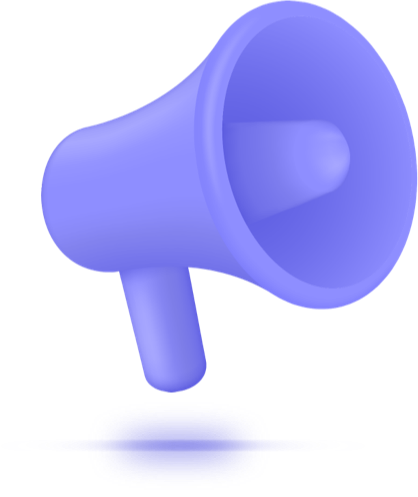
5. Social media marketing
Social media is often underutilized, and for many reasons; the reason I hear most often from small businesses is that it’s very time-consuming.
I agree; however, when adequately utilized, it’s worth the time and energy.
How is social media improperly utilized?
It’s essential to recognize that each social platform attracts distinct types of content and audiences. For instance, LinkedIn draws users seeking professional networking opportunities, where discussions predominantly revolve around business or industry-related topics rather than personal anecdotes like “first day of school” photos.
This segmentation across social platforms is evident in the content shared and discussed by users. Ensuring that your content aligns with the platform’s context and audience preferences is essential when crafting your social media strategy. Tap into and leverage the unique categorization of each social platform to increase effectiveness.
For example, you could break your content down by categorizing it with a preferred platform:
With Google’s recent emphasis on E.E.A.T metrics, it’s increasingly vital to cultivate a broad audience engaging with your content across multiple channels.